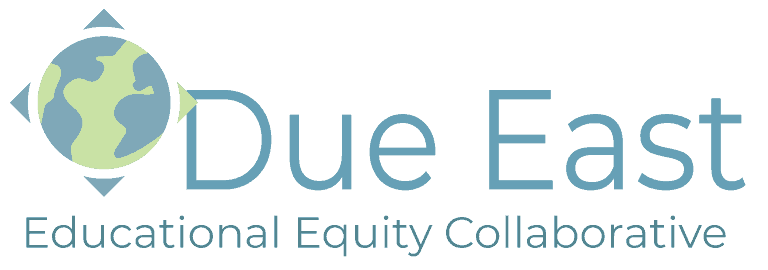The Answers Are Outside of Us: Effective Coaching for Educational Equity
Think of a professional coaching success story… One where you were either the coach or the person being coached. What made the coaching experience successful?
Think of a professional coaching failure… One where you were either the coach or you were the coachee. What made the coaching experience unsuccessful?
I have been in both positions: serving others in the role of coach and learning and growing from the direction of a dedicated coach. I have experienced both successful and unsuccessful coaching relationships and outcomes. A large portion of my work now is as an educational equity coach and I love it! I coach educators at all levels and layers of the school system, from school board members and administrators to directors and classroom teachers. We work on expanding educational equity and anti-racism within their spheres of influence. We work on systemic change in the large and small decisions they make. We dedicate our time to making schools more effective, more equitable and increasingly anti-racist. It is rewarding work. Through twists and turns, the relationships become deep and long lasting. But it is not easy work. And there are important aspects of educational equity coaching that are unique from other types of professional coaching.
The first time I had an “ah-ha” moment …an awareness that educational equity coaching is different, I was attending a Cognitive Coaching training. In Cognitive Coaching, questions asked by the coach reveal to a leader/educator some areas of their cognitive map (habits and patterns of perception, analysis and decision-making) that may not be complete and/or consciously developed. Through these questions, coachee’s thinking, and decisions become clearer to them, and their awareness and effectiveness increases. The goal of Cognitive Coaching is to develop leaders or educators in becoming self-directed, self-managing, self-monitoring and self-modifying. During the training I was taught that the answers lie within the leader or educator and it is the coach’s role to help the person being coached to access the wisdom and knowledge they already possess. Many models of professional coaching are built upon this framework. As I was contemplating this model and thinking about equity coaching, something did not sit right with me…
Yes, I would agree that a later-stage goal of equity coaching should be self-monitoring and self-modifying on the part of leaders and educators. And, by extension, hopefully this growth on the part of leaders and educators will expand equity within education communities. But, operating with the assumption in the early stages of equity coaching that leaders and educators come already equipped with an equity lens and the skills to use it often leads to perpetuation of inequity, and maintains white supremacy in thoughts and systems. There is not enough or wide-spread skill and experience with recognizing and dismantling racism in school systems. Effective understanding (at the conscious or unconscious level) of the operations and impact of racism and inequity has been rare and limited for most people I have coached. Racism and inequity are in the air that we breathe. As such we are rarely aware (in an operational way) of their existence. The idea that the answers to inequity lie within a system or individual that benefits from the existing inequities is naïve, self-serving and maintains existing structures of power and privilege.
To be clear and blunt, the answers are outside of us, not inside of us. We must seek dramatically divergent perspectives and experiences, we must locate new resources, we must upset habitual power and privilege structures and we must be held externally accountable. And that is where the hard part starts. Not with open ended questions… but with uncomfortable, leading probing and pushing.
As mentioned in an earlier blog post, all equity shifts in thought and practice are sensitive and uncomfortable. These shifts are sensitive and uncomfortable because as equity coaches we are:
- pushing on comfort zones
- upsetting what people are ‘used to’ and ‘how it has always been’
- revealing and challenging the areas where people have privilege
- countering narratives that people have been told their whole life
- questioning peoples’ hierarchy in the system and the merit of their status
- challenging people’s beliefs, perhaps even deeply held religious beliefs or hard-earned professional training
In response to these limitations and sensitivities, there are some urgent and unique considerations for equity coaching:
- The coaching relationship and plan must be grounded in a concrete definition of equity and inequity
- When setting goals or growth plans, the coaching conversations cannot only be about the person being coached. The primary focus of equity coaching is to influence the impact educators and leaders have on others and to make it more equitable. The ultimate goal of equity coaching is expansion of equity in education systems, not merely growth of the coachee for their own sake
- Equity coaching must be action oriented and cannot get stuck in analysis paralysis (cyclical thinking/minimal tangible progress)
- Equity coaching must practice Equity Literacy skills, cyclical iterations of recognizing, responding to and redressing inequities, as well as cultivating and sustaining equity
- Equity coaching must include divergent and often marginalized perspectives, coachee’s cognitive frames must be expanded with new equity frameworks and resources
- Equity coaching must prioritize community, collaboration and coalition-building
- Equity coaching must be grounded in historical and systemic understandings of racism, injustice and inequities. If the historical and systemic foundations of inequity are not known or understood by the person being coached, the coach must center that information
- Equity coaching should always include layers of accountability, pushing educators/leaders to hold themselves accountable, receiving and responding to external accountability for their impact within their sphere of influence
As we keep these considerations in mind, the actual process of equity coaching offers probing questions for personal reflection as well as suggestions, feedback, resources and guidance in working toward educational equity goals. While equity coaching is not prescriptive, it should be measured by the increases in equity in the coachee’s practice and sphere of influence. Equity coaching strengthens the coachee’s equity mindset and skillset by tapping into and leveraging positional power (i.e. decision-making inherent to our professional positions) and passion for equity (i.e. equity lens, equity will, equity mindset, equity skill). Ideally, positional power and passion for equity overlap, and when combined create measurable forward progress in the leader/educator’s success in expanding equity.
Effective educational equity coaching explicitly:
- guides leaders/educators to ask questions that expose systemic marginalization/oppression
- examines and minimizes the coachee’s role in perpetuating systemic marginalization/oppression
- sets clear and measurable professional goals that disrupt systemic marginalization and oppression
- equips leaders/educators with tools and skills needed to shift their own practices
- equips leaders/educators with tools and skills to enlist others in coalitions to disrupt oppressive practice
- guides leaders/educators to evaluate systemic equity setbacks, stagnation, and progress
While equity coaching rarely demands specific choices or actions, it is meant to guide individuals to better practices that expand equity in one’s sphere of influence including in the following ways:
- applying an equity lens to school practices, policies, and procedures
- supporting high levels of learning and engagement for all groups of students
- coaching, leading, and influencing colleagues
- creating and maintaining a school culture that is equitable and culturally competent
- engaging families and community members within the school community
- equitably allocating material and non-material school resources
Lastly, but most importantly, the coach needs to have a firm foundation in equity mindset and skillset and an on-going equity growth plan. As coaches we must also be self-monitoring and self-modifying—deeply careful that our equity coaching is not reinforcing inequitable mindsets and decisions for leaders and educators. An effective coaching relationship is grounded in the history of inequity, expansive and courageous in visioning equity, dynamic, honest, trusting, encouraging and most importantly action- and accountability-oriented. Dismantling inequity and building fair, just and successful schools requires all of us. Sometimes we will be coaching others, sometimes we will be coached. Let’s dig in and do this together!
Reflection Questions:
- As a coach, how do you support educators/leaders in the process of cultivating an equity mindset? How do you handle any emotion and/or resistance that surfaces?
- Which of the urgent and unique equity coaching considerations do you feel you attend to well in your coaching practice? Which do you need to expand or emphasize more? How will you strengthen your coaching practice based on these considerations?
- What are some of your go-to resources to offer those you coach? What equity frameworks do you lean on? How do you follow up and offer accountability for using them?
- What is the role of data in equity coaching? How might you use it to hold educators/leaders accountable for increasing equity in their sphere of influence?
If you provide equity coaching for others, you can find a link to our equity coaching protocols here and our equity coaching planning and progress log here.


